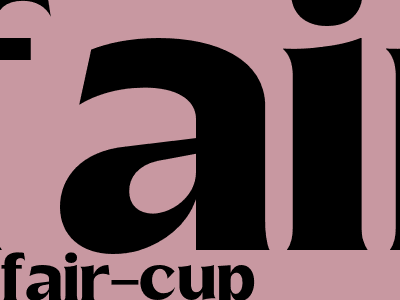
The Future of Coffee: Fair-Cup Revolutionizing the Industry
Redefining Sustainability and Equity in the Coffee Supply Chain
Introduction
The coffee industry, a global powerhouse, has long been plagued by systemic issues of sustainability and exploitation. However, a recent movement led by Fair-Cup is set to transform the industry, championing fair trade practices and environmental stewardship.
Fair-Cup, a non-profit organization, was founded with the mission of creating a more equitable and sustainable coffee supply chain. Through innovative initiatives and partnerships, they aim to empower coffee farmers, protect the environment, and deliver ethically sourced coffee to consumers.
Revolutionary Initiatives
- Direct Trade Partnerships: Fair-Cup establishes direct trade relationships between coffee farmers and roasters, eliminating middlemen and ensuring that farmers receive a fair share of the profit.
- Sustainability Standards: The organization certifies farms that adhere to strict environmental and social standards, promoting biodiversity, reducing water waste, and protecting soil health.
- Consumer Education: Fair-Cup educates consumers about the importance of ethical coffee consumption, encouraging them to support brands that prioritize social and environmental responsibility.
Impact on the Industry
The Fair-Cup movement has had a significant impact on the coffee industry, raising awareness about the challenges faced by coffee farmers and promoting sustainable practices.
By connecting consumers with the farmers who grow their coffee, Fair-Cup has fostered a sense of connection and transparency, empowering consumers to make informed choices.
The organization's sustainability standards have encouraged farmers to adopt environmentally friendly practices, reducing the industry's ecological footprint.
Benefits for Coffee Farmers
- Increased Income: Fair-Cup's direct trade partnerships ensure that farmers receive a fair price for their coffee, improving their livelihoods and reducing poverty.
- Sustainable Practices: The organization's sustainability standards provide guidance and resources for farmers to improve their farming practices, leading to increased productivity and resilience.
- Community Development: Fair-Cup invests in community projects, such as education and healthcare, empowering coffee communities and creating a better future for future generations.
Conclusion
The Fair-Cup movement is revolutionizing the coffee industry by promoting fair trade practices, environmental sustainability, and consumer education. Through their innovative initiatives and partnerships, they are creating a more equitable and sustainable coffee supply chain, benefiting coffee farmers, protecting the environment, and delivering ethically sourced coffee to consumers.
As the Fair-Cup movement continues to gain momentum, the future of coffee looks brighter than ever, where sustainability, equity, and quality go hand in hand.